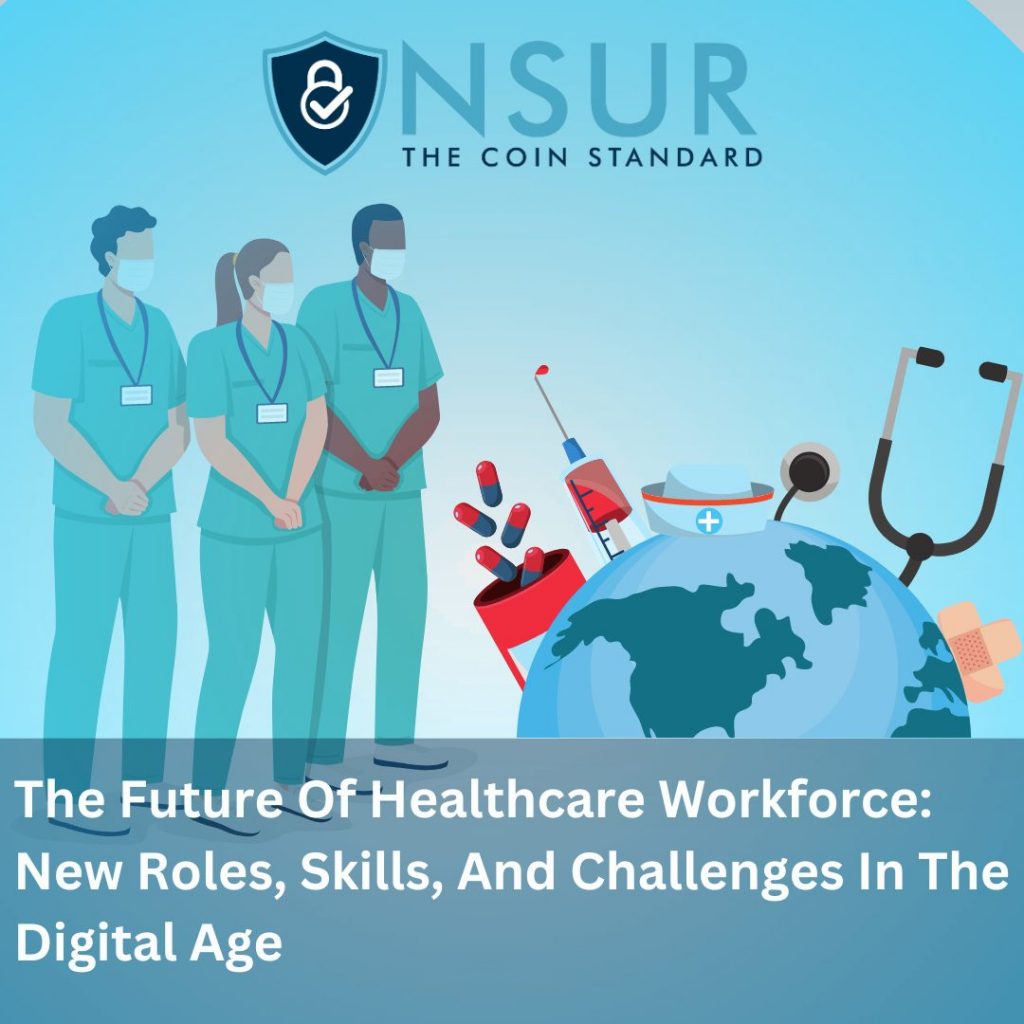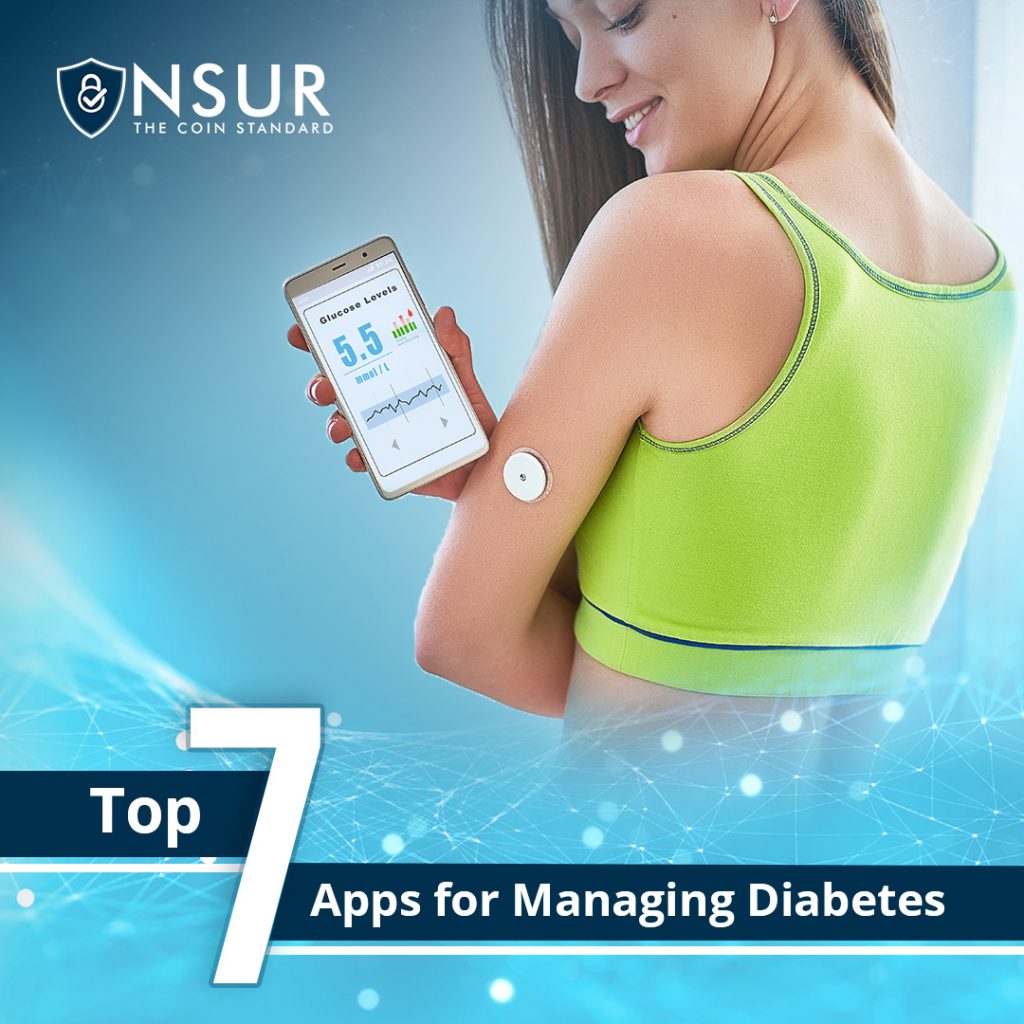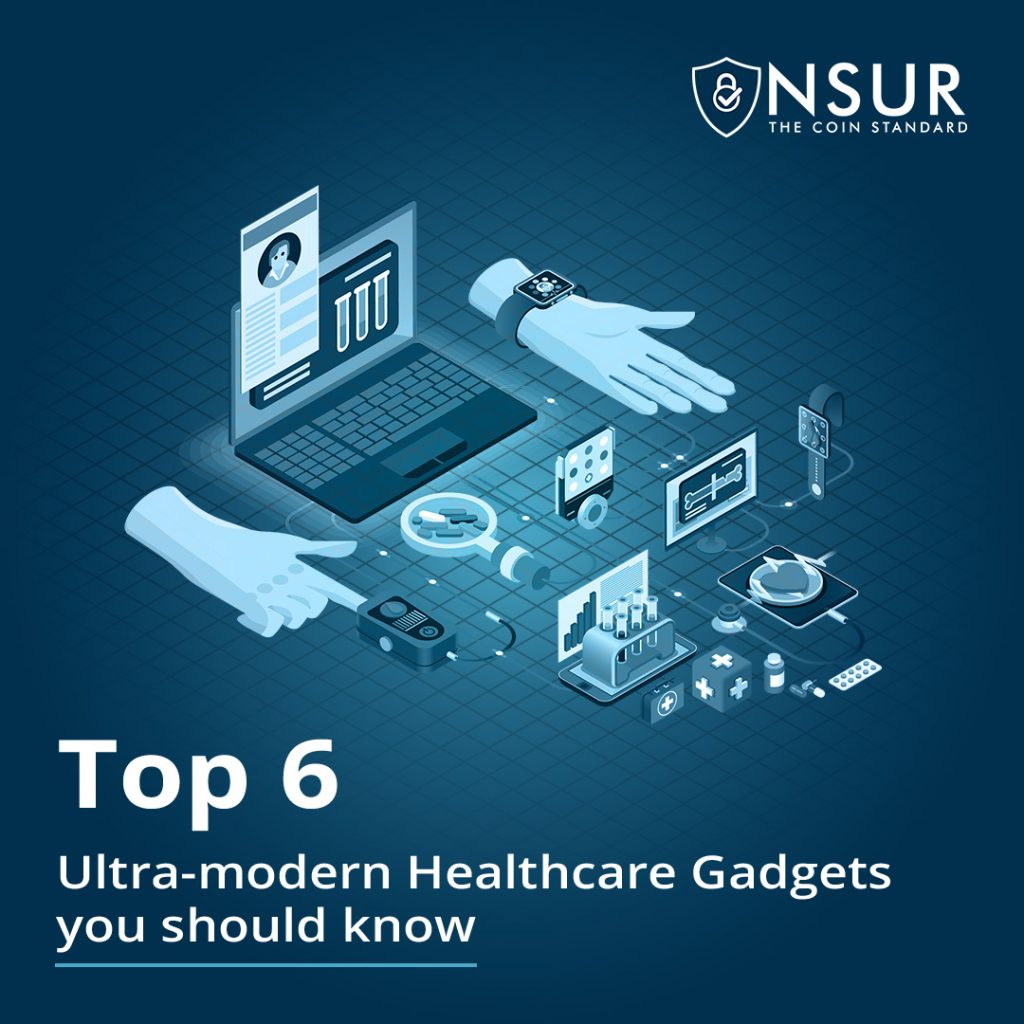
Technology is shaping the healthcare industry and is changing it in profound ways. It is ushering in a new era of digital advancements that are transforming how healthcare services are delivered, managed, and experienced. With an array of potential benefits, digital technologies offer unique opportunities to strengthen health systems. Healthcare workers are experiencing significant changes, including new roles, new skills, and a new set of challenges in the digital age. In this fast-paced digital age, the ability to learn and adapt has become a critical survival skill, surpassing the importance of specific knowledge and skill set. In this blog article, we will cover the future of the healthcare workforce in the digital age, including rising positions, skills that healthcare professionals must obtain, and potential challenges. Understanding these changes is necessary for healthcare practitioners to adapt and succeed in the ever-changing healthcare world.
New Roles In The Healthcare Workforce
With the integration of technology in healthcare, new roles have emerged for managing and maintaining digital systems. These roles include providing care remotely via telecommunication technologies and analyzing and interpreting healthcare data. Let us explore them more closely in detail.
- Health IT Specialists: The healthcare business has already begun to incorporate digital technologies into service delivery. The demand for health IT expertise is increasing as healthcare organizations embrace electronic health records (EHRs), health information exchange (HIE) systems, and other digital systems. These individuals are in charge of monitoring and maintaining these digital systems, assuring smooth functioning, data accuracy, and security. Health IT specialists are educated in EHR management and maintenance, HIE system implementation, data integration, and data security standards. They play a major role in ensuring that digital systems are optimized for patient care and that patient data is protected following rules such as the Health Insurance Portability and Accountability Act (HIPAA).
- Telehealth Providers: The digital age has accelerated the rise of telehealth and virtual care. Telehealth providers are medical professionals who provide care from a distance using telecommunications technology such as video conferencing, remote monitoring, and other digital tools. Telehealth clinicians can examine, diagnose, and treat patients from a distance, minimizing the need for in-person visits and making healthcare more accessible to patients living in rural areas or with limited mobility. Telehealth providers can be doctors, nurses, or other healthcare professionals who specialize in telehealth care. They must be able to use telehealth platforms, conduct virtual exams, and manage patients remotely, as well as maintain excellent communication and provide compassionate treatment in a virtual setting.
- Data Analysts and Scientists: The healthcare industry produces vast amounts of data via EHRs, wearables, and other digital devices. Data science and big data analytics can provide practical insights that can be used to make strategic healthcare decisions regarding health systems. As a result, there is an increasing need for data analysts and scientists. These individuals collect, analyze, and evaluate healthcare data to provide insights that can be used to enhance patient outcomes, personalize treatment approaches, and optimize healthcare operations. Clinical research, population health management, and healthcare operations are all areas where data analysts and scientists can work. To understand data and develop meaningful insights that can inform decision-making and improve patient care, they need skills in data analysis, statistical modeling, data visualization, and domain-specific knowledge of healthcare.
Skills for Healthcare Workforce in the Digital Age
The medical community must develop new skills as they adapt to the digital age. It is time to educate frontline workers, senior-level executives, and support staff in digital skills so that this incredible digital transition can be sustained. A comprehensive approach is required to address the situation. We will look at some of the most important skills for the healthcare workforce in the digital age:
Digital Literacy
Healthcare professionals must be savvy in the use of digital tools and technologies such as electronic health records (EHRs), telehealth platforms, and other healthcare technologies. The concept of digital literacy refers to the ability to use digital devices, access and navigate digital systems, and comprehend how digital technology can be used for patient care, communication, and information gathering. To effectively adapt to the changing healthcare scene, healthcare workers should stay up to date on the latest developments in digital technology and consistently strengthen their digital literacy abilities.
Data Analytics
With the use of digital technologies, healthcare organizations generate vast amounts of data. Which forces healthcare professionals to develop skills to analyze, interpret, and visualize that data. By combining data analytics training with the right skills, healthcare professionals can analyze and understand healthcare data to improve patient care and develop insights that enhance decision-making. Data analytics skills enable healthcare professionals to detect patterns, trends, and correlations in data, conduct predictive analysis, and build data-driven solutions to complicated healthcare challenges. These abilities are especially important for jobs like data analysts, clinical informaticists, and population health managers, which demand a thorough understanding of data analysis techniques and tools.
Cybersecurity
Using digital technologies, the healthcare industry generates huge amounts of data, making it one of the largest data banks in the world. This makes it more vulnerable to unauthorized data access and information theft. As digital systems become increasingly reliant on sensitive patient data, cybersecurity has become a vital skill for healthcare workers. Healthcare organizations are susceptible to cyber threats, and several cyber hazards might jeopardize patient privacy and data security, such as data breaches, ransomware attacks, and other malicious activities. It is therefore essential that healthcare professionals understand cybersecurity best practices, including password management, encryption, and data backup. In addition, they need to follow healthcare cybersecurity rules and guidelines such as HIPAA. Cybersecurity skills are especially crucial for health IT specialists, data analysts, and other professions involving the management and protection of sensitive healthcare data.
Challenges in the Digital Age
While the digital age provides much potential for professionals in the healthcare sector, it also brings certain obstacles. Let’s discuss some of the challenges that healthcare professionals may face in the digital age:
- Technological Disruption: As digital technologies are integrated into healthcare, traditional roles, and workflows may be disrupted. Which may result in job displacement as well as reskilling/upskilling opportunities. For example, when telehealth and virtual care grow more in practice, healthcare workers who are unfamiliar with the telehealth platforms may struggle to adjust to this new method of care delivery. Similarly, the use of AI and machine learning to automate everyday operations may have an impact on work fields such as medical transcriptionists, pharmacy technicians, and many others. To remain connected in an evolving landscape, healthcare professionals must be proactive in developing new skills and staying updated with the current technological innovations.
- Data Security and Privacy: Concerns regarding data security and privacy are growing as the healthcare business collects huge amounts of data through the administration of digital systems. Healthcare organizations must take necessary precautions to secure patient data from unauthorized access, breaches, and fraudulent use. Healthcare professionals must grasp the importance of patient privacy and data security, follow data protection rules and guidelines, and use digital technology responsibly and securely. Patient data breaches can have major implications, including legal liability, damage to the healthcare organization’s image, and loss of patient trust.
- Ethical and Legal Considerations: There are many challenges healthcare professionals have to face while embracing digital technology. Healthcare providers must consider ethical and legal aspects when using digital technologies. The application of AI and machine learning in healthcare raises concerns about bias, justice, and accountability in decision-making is one example. Healthcare workers must be aware of the ethical implications of employing digital technologies in research, operations, and patient care, as well as follow ethical rules and standards.
Furthermore, the regulatory environment around digital health is continuously evolving, and healthcare providers must stay up to date on the legislation and laws related to data protection, telemedicine, and other digital health practices to avoid legal issues.
Future Implication and Recommendations for the Healthcare Workforce
As the healthcare sector evolves in the digital era, the future of the healthcare workforce is predicted to shift dramatically. AI, robotics, and virtual reality advancements are anticipated to bring novel opportunities and challenges to the healthcare profession. Healthcare professionals must be ready to adapt to these changes and learn the skills required to thrive in the digital age. Investing in learning and development, prioritizing research-driven information, and adapting a hybrid work culture can assist healthcare professionals in staying flexible and resilient in the context of changing requirements in the healthcare sector. By anticipating the future, healthcare workers can prepare themselves for the ever-changing healthcare market. And here are some recommendations for the same.
Progressive Learning and Skill Development
Healthcare professionals must take the initiative to learn new skills and adopt a continuous learning mindset. Taking part in training programs, workshops, and certifications can help them learn new skills such as analytics, cybersecurity, and digital literacy. Staying updated with the latest technological advances and healthcare trends will keep healthcare professionals connected in an evolving world.
Collaboration and Interdisciplinary Approach
Collaboration among multiple stakeholders, including healthcare experts, IT specialists, data analysts, administrators, and patients, is necessary for the integration of digital technology in healthcare. Healthcare workers must be willing to collaborate with other experts and work in multidisciplinary teams to take full advantage of the potential of digital technologies in enhancing patient care. This may entail learning to interact successfully with professionals from various backgrounds, as well as recognizing their roles and duties and cooperating towards common goals.
Embracing Telehealth and Virtual Care
Telehealth and virtual care have grown in popularity in the digital age, particularly during the COVID-19 pandemic. Telemedicine and virtual care are two potential delivery methods for healthcare services, particularly in remote and underserved locations. Healthcare practitioners should be willing to embrace these technologies and investigate their potential for providing healthcare services. This may require learning how to use telehealth platforms, understanding the regulatory and legal implications of telehealth, and modifying clinical procedures to accommodate virtual treatment.
Cyber Security and Best Practices
Cybersecurity Awareness and Best Practices: As the cybersecurity threat scenario evolves, healthcare personnel must be diligent in protecting patient data and maintaining data security and privacy. They must be aware of cybersecurity best practices such as password management, encryption, and data backup, as well as follow healthcare cybersecurity legislation and guidelines such as HIPAA. All healthcare personnel should view cybersecurity as a shared duty, and frequent training and awareness programs should be implemented to keep them up to date on the current risks and best practices.
Ethical Concerns and a Patient-Centric Approach
As technology continues to develop, healthcare professionals need to prioritize ethical concerns and ensure patient-centered care stays at the heart of their practices. They must be cautious in recognizing, understanding, and addressing ethical risks connected to digital health, such as AI algorithm bias, data breaches, and the possible impact of technology on patient-provider interactions. The design of patient-centric strategies depends on understanding patients’ digital technological preferences, values, and needs. Developing a patient-centric strategy involves acknowledging patients’ digital-age preferences, values, and requirements and personalizing healthcare services properly.
Embracing Innovation and Entrepreneurship
The digital era gives ample opportunities for healthcare professionals to create and discover innovative solutions to healthcare concerns as technology advances. Healthcare professionals can experiment with entrepreneurship and innovation by creating digital solutions, collaborating with startups, or taking part in innovative programs. Being open to creativity and entrepreneurial thinking can help to improve patient care while also opening up new employment options in the digital health area.
Final Thoughts
The digital age has brought incredible developments in the healthcare industry, revolutionizing how healthcare services are delivered, managed, and experienced. Healthcare professionals must adapt to this changing environment by learning new skills, integrating digital technologies, emphasizing ethical concerns, and encouraging digital health. Healthcare personnel can use digital technologies to improve patient care, improve healthcare outcomes, and stimulate innovation in the healthcare business by doing so. As we move forward in the digital age, healthcare practitioners must be proactive in preparing for the future of the healthcare workforce and ensuring that patient-centered care stays at the forefront of their practice.










